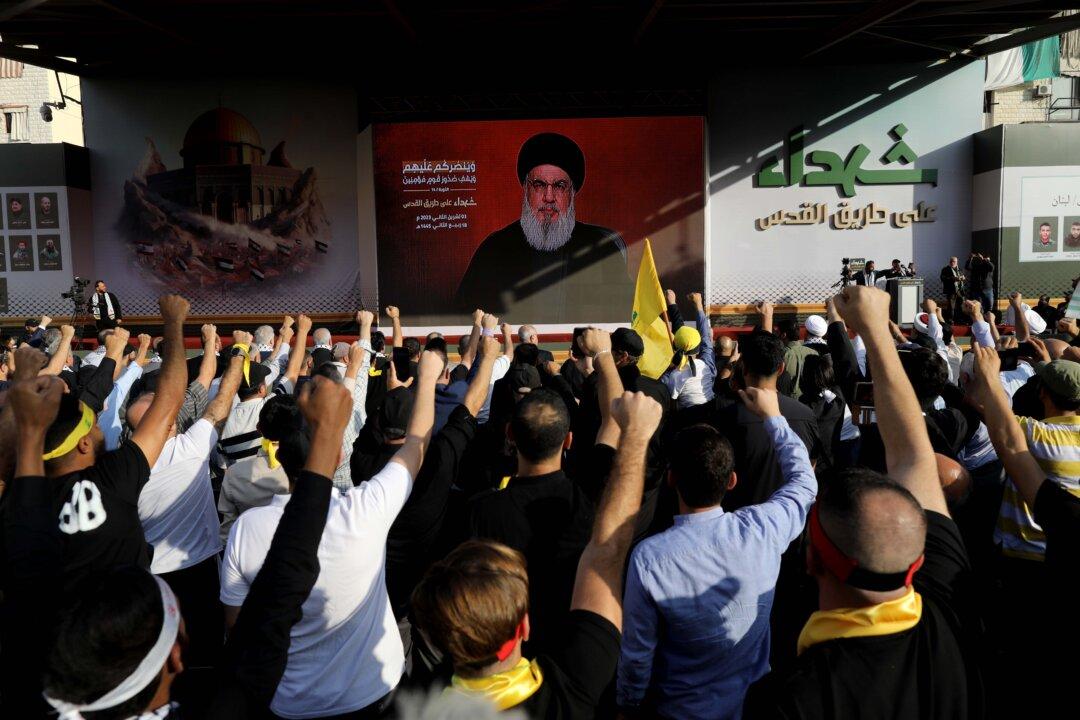Hezbollah leader Hassan Nasrallah, speaking for the first time since the Hamas attack on Israel dramatically escalated tensions in the region, threatened on Friday that his forces are “ready for all possibilities” to scale up the war.
In a televised speech that was widely expected to indicate whether the Lebanon-based terrorist group would wage a full-fledged war against Israel, Mr. Nasrallah threatened a further escalation as Israel rules out a ceasefire in Gaza, but stopped short of promising to fully devote his forces to open a second front, according to English translations from Sky News and Israeli outlet Haaretz.





